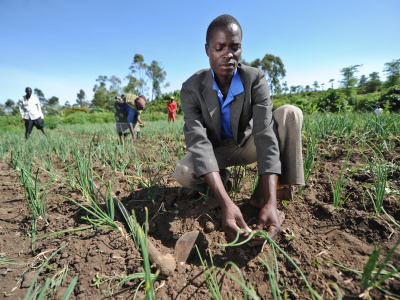
Analysis of the implementation of the African Union's 0.2% levy: Progress and challenges
In this Brief, we look back at the year 2017. We look at the progress of the process within which the implementation of the 0.2% levy is being discussed. We then focus on one of the contentious issues raised by African Member States, namely the legality and the universal applicability of the 0.2% levy. We then share some observations on the way forward for a successful implementation.
Summary
In July 2016 the African Union decided to introduce a 0.2% levy on eligible non-African imports to finance its operations, programmes and peace and security operations. This decision stemmed from the realisation that, while the AU Member States contribute substantially to the financing of the Union’s daily functioning, the implementation of its priorities has been dominated by external funding, especially from the European Union and from individual European Member States.
It is not the first time that African countries discuss and decide on financing regional organisations. In fact, the issue has been on the table since the very creation of the AU back in 2001. However, this was the first time Member States have discussed its concrete implementation and, in 2017, some African countries started taking steps to turn the decision on the 0.2% into reality.
However, a number of implementation issues arose in the course of the year, requiring further clarifications and dialogue. These ranged from technical and legal issues related to the implementation of the levy to the accountability around the use of funds. As a result, the discussion on the implementation of the 0,2% needs to be viewed in the broader context of reforming the AU’s financing and budget processes.




